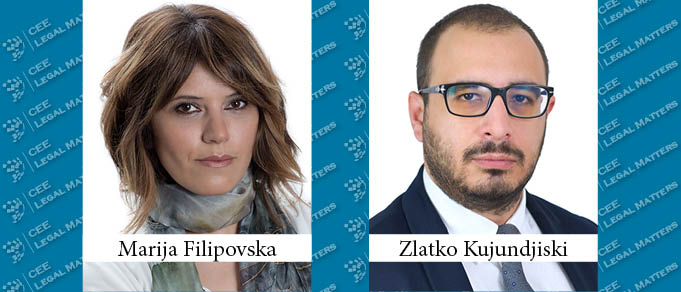On November 17, 2021, the Infectious Diseases Commission of North Macedonia proposed anti-COVID-19 measures requiring unvaccinated healthcare professionals and public sector employees to be vaccinated and recommending the vaccination of private-sector employees. The form of the measures could differ somewhat from this proposal; the definite measures, however, are expected to be adopted soon.
The measures are a logical outcome of the negative effects of COVID-19 on public health, the increased mortality, the economic repercussions across numerous sectors, and the negative impact on the social and political environment in North Macedonia. As in many other Eastern European countries, North Macedonia has vaccinated a low number of citizens – only 47% of its adult population is fully COVID-19 vaccinated, one of the lowest vaccination rates in Europe. That said, and in keeping with the example set by some other European countries, the measures appear to be necessary in order to protect the people, the economy, and the social system.
If properly implemented, these measures may ultimately compel employees in certain categories to accept the COVID-19 vaccine in North Macedonia. Although necessary, in the context of the developing pandemic situation in Europe, the measures raise questions about how they will be implemented in practice, the potential repercussions on the business sector, and the expenses incurred.
How Would the Anti-COVID-19 Measures Affect Employers?
The new anti-COVID-19 measures stipulate that all healthcare professionals must be fully vaccinated, and all public-sector employees should present (1) a certificate confirming they have received one dose of vaccine, or (2) a negative PCR test, or (3) a certificate confirming they have had COVID-19 (not older than 45 days) in order to enter their working premises.
The proposed period for compliance with these conditions is 30 days, for healthcare professionals, and 10-15 days for public-sector employees, from the date on which the measures are adopted.
The public sector (i.e., central administration, local self-government units, state and local self-government institutions, bodies, etc.) employs around 10% of all employees in North Macedonia and, if enacted, these measures would ultimately be expected to result in the mandatory vaccination of all healthcare professionals and most public-sector employees.
At this point, it is only “recommended that the private sector join in and introduce the measures to protect the production capacities and the economic processes of the country.”
Specific Challenges in Implementing the New Anti-COVID-19 Measures
It remains to be seen how the government would compel healthcare and public-sector employees to accept vaccinations, how the measures would be applied in practice, and who would bear the implementation costs.
It is not yet clear whether the measures will be applied to the private sector. The invitation for the private sector “to join in the measures” reveals that they are voluntary for private companies, so they seem to be allowed to decide whether, and to what extent, they will comply with the new measures.
As there is no state of emergency, these measures would be implemented by adopting a new (or amending the existing) law. The adoption of any act other than law (resolutions, decisions, decrees, etc.) by the government or other bodies would be challenging to implement, so it remains to be seen how the government would tackle this issue.
In practice, we have already started seeing a variety of reactions from various stakeholders – employers, commercial chambers, labor union representatives, and others. As already mentioned, the measures’ definite form and content are soon to be solidified.
By Marija Filipovska, Partner, and Zlatko Kujundjiski, Attorney-at-Law, CMS
This Article was originally published in Issue 8.12 of the CEE Legal Matters Magazine. If you would like to receive a hard copy of the magazine, you can subscribe here.
